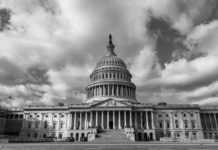
New York Gov. Kathy Hochul (D) backed efforts to reduce shoplifting in her state following a significant increase in crime since the 2020 George Floyd riots. The news came after New York pulled back much of its previously touted bail reform law, which critics cited as a chief source of the increased crime rate.
The governor said that the state would try to lower retail theft.
The governor said that the increase in shoplifting was “something that we’re focused on.” Hochul said that she would announce more at New York’s annual State of the State address later this year.
Despite the proclamation, the New York State legislature did not pass a bill that would have increased penalties for repeat shoplifters. The proposed plan would have had such suspects held on bail, which has been significantly reduced in New York in the last five years.
Instead of furthering the legislation, the governor’s office announced a task force to study shoplifting.
Since 2019, New York has seen a significant increase in both property and violent crime. Last year, New York City sounded the alarm over concern about the relative ease of stealing Kia and Hyundai vehicles. The theft of these Korean-made cars also sparked a lawsuit backed by multiple cities dominated by the Democratic Party.
Mayor Adams flashed LA’s Skid Row neighborhood while touting the Big Apple’s year-end crime stats, which show overall crime across Gotham dropped slightly in 2023 — down 0.3% — compared to the year prior. https://t.co/swMvrAXi3D pic.twitter.com/AFTQgVEZJ5
— New York Post (@nypost) January 4, 2024
Furthermore, New York is in a similar position as other major cities regarding crime. Last year, the retail giant Target announced that it would be closing a number of locations, including in New York and San Francisco.
The closures included a location in Manhattan’s East Harlem neighborhood as Target cited the effects of organized retail theft.
“We know that our stores serve an important role in their communities, but we can only be successful if the working and shopping environment is safe for all,” the corporation said.
Overall organized retail theft has increased markedly in recent years. Footage of flash mobs stealing thousands of dollars of merchandise from retail locations has gone viral on social media.
Target added that it increased spending on security employees and was locking up more merchandise. Employees have also undergone increased training to handle the wave of theft.
The closure also affected stores in Portland, Oregon and Seattle.










